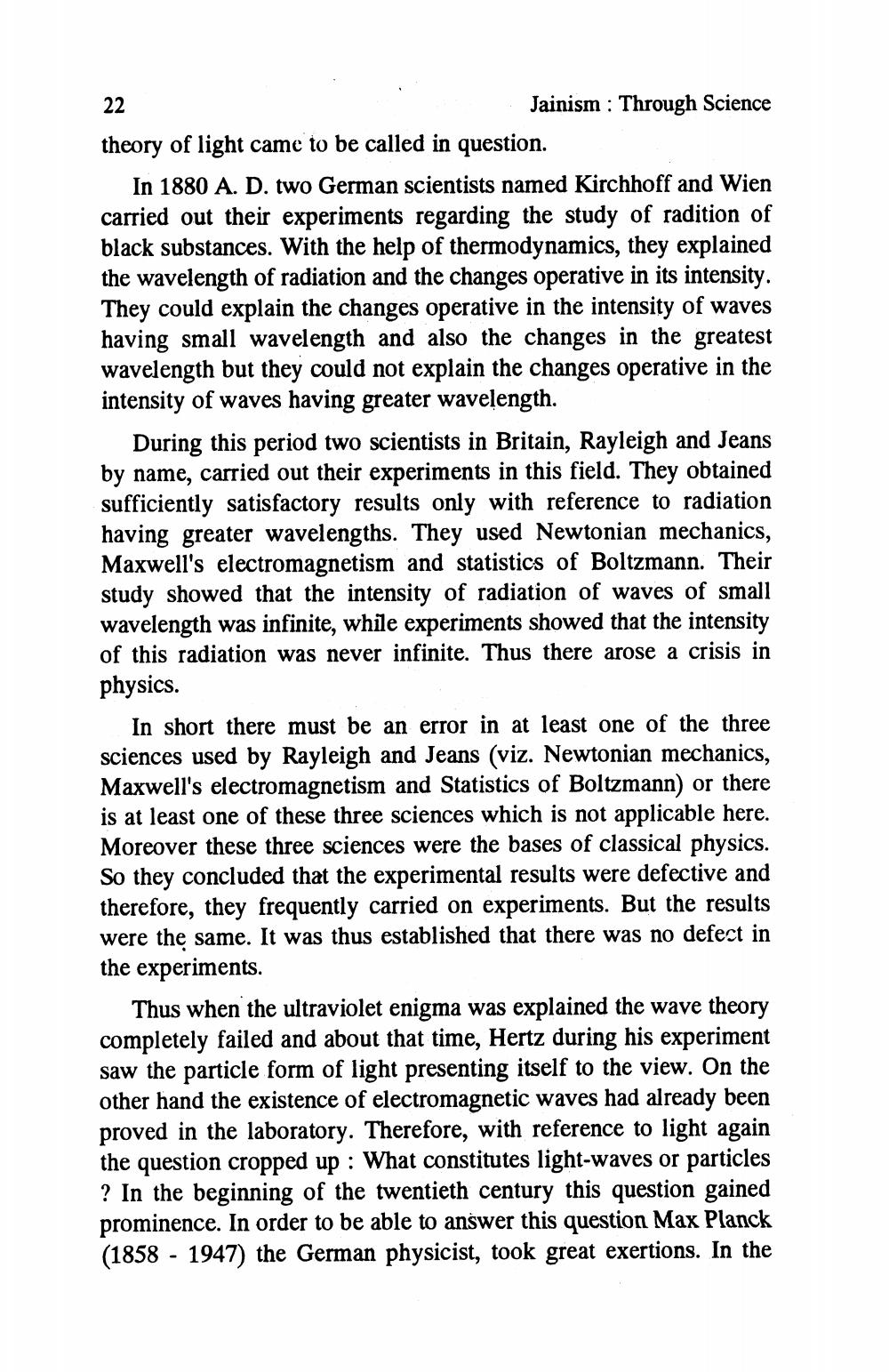________________
Jainism Through Science
22
theory of light came to be called in question.
In 1880 A. D. two German scientists named Kirchhoff and Wien carried out their experiments regarding the study of radition of black substances. With the help of thermodynamics, they explained the wavelength of radiation and the changes operative in its intensity. They could explain the changes operative in the intensity of waves having small wavelength and also the changes in the greatest wavelength but they could not explain the changes operative in the intensity of waves having greater wavelength.
During this period two scientists in Britain, Rayleigh and Jeans by name, carried out their experiments in this field. They obtained sufficiently satisfactory results only with reference to radiation having greater wavelengths. They used Newtonian mechanics, Maxwell's electromagnetism and statistics of Boltzmann. Their study showed that the intensity of radiation of waves of small wavelength was infinite, while experiments showed that the intensity of this radiation was never infinite. Thus there arose a crisis in physics.
In short there must be an error in at least one of the three sciences used by Rayleigh and Jeans (viz. Newtonian mechanics, Maxwell's electromagnetism and Statistics of Boltzmann) or there is at least one of these three sciences which is not applicable here. Moreover these three sciences were the bases of classical physics. So they concluded that the experimental results were defective and therefore, they frequently carried on experiments. But the results were the same. It was thus established that there was no defect in the experiments.
Thus when the ultraviolet enigma was explained the wave theory completely failed and about that time, Hertz during his experiment saw the particle form of light presenting itself to the view. On the other hand the existence of electromagnetic waves had already been proved in the laboratory. Therefore, with reference to light again the question cropped up: What constitutes light-waves or particles ? In the beginning of the twentieth century this question gained prominence. In order to be able to answer this question Max Planck (1858-1947) the German physicist, took great exertions. In the




